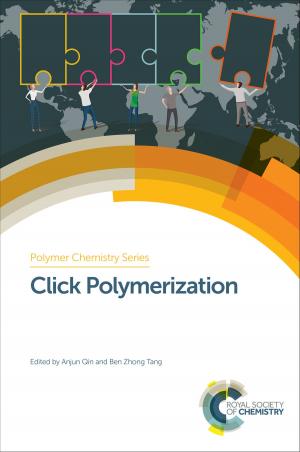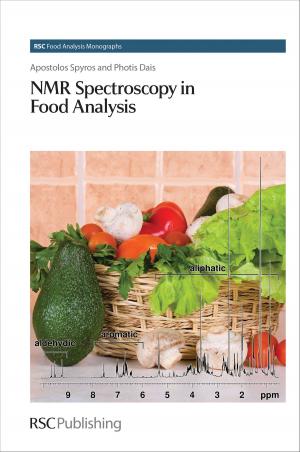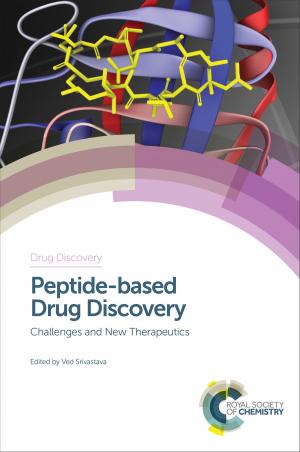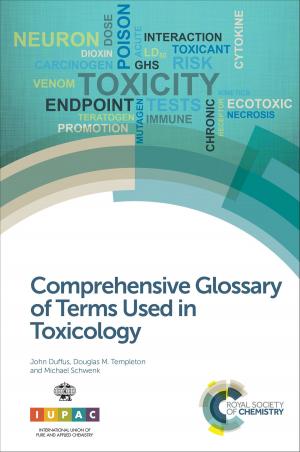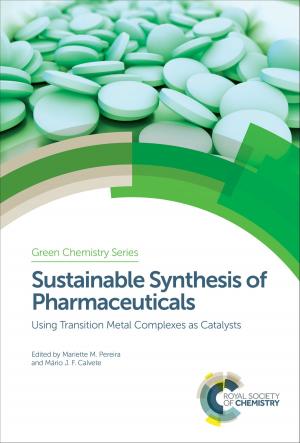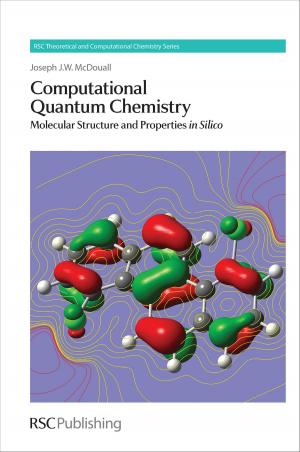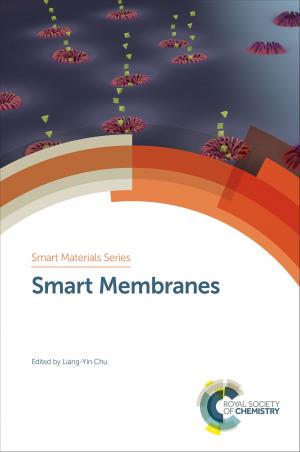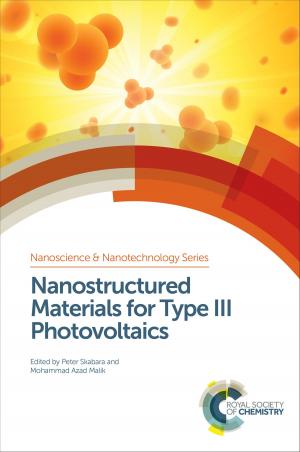Nanoparticle Design and Characterization for Catalytic Applications in Sustainable Chemistry
Nonfiction, Science & Nature, Science, Chemistry, Physical & Theoretical, Technology, Material Science| Author: | Rafael Luque, Antonio R Montoro, Manoj Gawande, Narendra Kumar, Himanshu Jena, Guobao Xu, Ning Yang, Adam Lee, Vasile Parvulescu, Laura Maria Cornaglia, Mostafa Rahimnejad, Justin S J Hargreaves | ISBN: | 9781788018050 |
| Publisher: | Royal Society of Chemistry | Publication: | May 10, 2019 |
| Imprint: | Royal Society of Chemistry | Language: | English |
| Author: | Rafael Luque, Antonio R Montoro, Manoj Gawande, Narendra Kumar, Himanshu Jena, Guobao Xu, Ning Yang, Adam Lee, Vasile Parvulescu, Laura Maria Cornaglia, Mostafa Rahimnejad, Justin S J Hargreaves |
| ISBN: | 9781788018050 |
| Publisher: | Royal Society of Chemistry |
| Publication: | May 10, 2019 |
| Imprint: | Royal Society of Chemistry |
| Language: | English |
Nanoparticles exhibit a range of different properties when compared to bulk materials. Their high surface-area to volume ratio makes them particularly attractive for use as catalysts and recent years have seen an explosion of research in this area. The ability to fine-tune the size and structure of nanoparticles means that it is possible to design catalytic materials for improved activity or specificity.
As catalysis is one of the key technologies for more sustainable production of both chemicals and energy, the past few years have seen increasing numbers of nanomaterials reported for these applications. Depending on the application, a number of different catalyst synthesis and optimization protocols can be used. This book provides comprehensive links between the design and fabrication method for nanoparticles and their catalytic performance (activity, selectivity and stability) in various applications.
Presenting an introduction to the concept of catalyst design and recent developments in the preparation and characterisation of nanomaterials, followed by several chapters on the design of catalysts for specific applications, this book is a valuable resource for researchers working on catalytic reactions, industrial processes and nanomaterial applications.
Nanoparticles exhibit a range of different properties when compared to bulk materials. Their high surface-area to volume ratio makes them particularly attractive for use as catalysts and recent years have seen an explosion of research in this area. The ability to fine-tune the size and structure of nanoparticles means that it is possible to design catalytic materials for improved activity or specificity.
As catalysis is one of the key technologies for more sustainable production of both chemicals and energy, the past few years have seen increasing numbers of nanomaterials reported for these applications. Depending on the application, a number of different catalyst synthesis and optimization protocols can be used. This book provides comprehensive links between the design and fabrication method for nanoparticles and their catalytic performance (activity, selectivity and stability) in various applications.
Presenting an introduction to the concept of catalyst design and recent developments in the preparation and characterisation of nanomaterials, followed by several chapters on the design of catalysts for specific applications, this book is a valuable resource for researchers working on catalytic reactions, industrial processes and nanomaterial applications.

